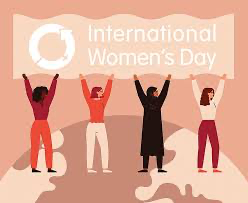International Women’s Day is a global celebration on the eighth day of March of each year, and is held to indicate general respect, appreciation and love for women for their economic, political and social achievements, and in some countries such as China, Russia and Cuba women get leave in this today. The celebration of this occasion came after holding the first conference of the International Democratic Women’s Union in Paris in 1945. It is known that the International Democratic Women’s Union consists of the affiliated organizations of the communist parties and was the first global celebration of International Women’s Day, although some researchers suggest that International Women’s Day was in the wake of Some of the women’s strikes that took place in the United States. In some places, the political feature that accompanies Women’s Day is overlooked, so the celebration is more like a mixture of Mother’s Day and Valentine’s Day. However, in other places, the celebration is often accompanied by a strong political feature and certain humanitarian slogans by the United Nations, to raise social awareness of women’s struggle globally. Some people celebrate this day by wearing pink ribbons.
International Women’s Day is celebrated in a variety of ways around the world; It is considered a public holiday in many countries, and is celebrated socially or locally in others. The United Nations celebrates the holiday in connection with a specific cause, campaign, or topic in women’s rights. In some parts of the world, International Women’s Day still reflects its political origins, marked by protests and calls for radical change; In other regions, particularly in the West, it is largely socio-cultural and centers around the celebration of womanhood.
From the beginning the first celebration of Women’s Day (National Women’s Day [English]) was held on February 28, 1909 in New York City and was organized by the Socialist Party of America at the suggestion of activist Teresa Malkiel. There have been claims that this day was a commemoration of the protest of women workers in garment factories in New York on March 8, 1857, but researchers have denied these allegations and said that they aim to separate International Women’s Day from its socialist origin.
In August 1910, the International Socialist Women’s Conference was convened prior to the general meeting of the Second Socialist International in Copenhagen, Denmark. Inspired in part by the American socialists, the German delegates Clara Zetkin, Kate Duncker [English], Paula Theed [English] and others proposed that Women’s Day be held annually without specifying a specific date. The 100 delegates representing 17 countries endorsed the idea as a strategy to promote equal rights, including women’s suffrage.
The following year, on March 19, 1911, more than a million people in Austria, Denmark, Germany and Switzerland celebrated the first International Women’s Day. There were 300 demonstrations in Austria-Hungary alone, in which women marched in large processions down the Vienna Ring Road and carried banners honoring the martyrs of the Paris Commune. Women across Europe demanded the right to vote and hold public office, and protested gender discrimination in employment.
International Women’s Day did not initially have a fixed date, although it is generally celebrated in late February or early March. Americans continued to celebrate National Women’s Day on the last Sunday in February, while Russia celebrated International Women’s Day for the first time in 1913 on the last Saturday in February (albeit based on the Julian calendar as on the Gregorian calendar where the date is March 8). In 1914, International Women’s Day was celebrated on March 8 for the first time in Germany, which was probably on a Sunday. As elsewhere, women’s suffrage was celebrated in Germany, which German women did not enjoy until 1918. At the same time, there was a rally in London in support of women’s suffrage, during which campaigner Sylvia Pankhurst was arrested in front of Charing Cross station while on her way to give a speech in Trafalgar Square.



